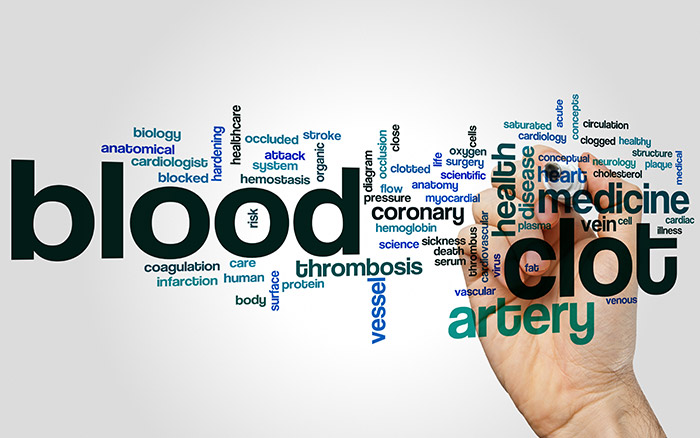- Home
- About Us
- Advanced Testing
- Nutrition & Self-Care
- Further Learning
- New Member Info
- Contact
This genetic test identifies individuals with a defect in clotting factors. Patients with an abnormal Factor V Leiden gene are at increased risk of developing blood clots (which can lead to heart attacks, strokes, or pulmonary embolisms). These patients should consider more aggressive thrombosis (clot) prevention measures than the average individual. Effective anticoagulant therapy can diminish the risk of these potentially life-threatening events.
Factor V is a coagulation protein produced by the liver that is needed to make clots, but its clotting action is controlled by another protein called Activated Protein C. To stop blood from forming clots Activated Protein C turns off Factor V, but it does not work well on the abnormal Factor V Leiden protein so clotting will go on longer than usual in these patients. This is why Factor V Leiden can also be referenced as Activated Protein C resistance.

Women with half this gene variant (heterozygotes) who take estrogen forms of contraception have a 35-fold increased risk for developing a blood clot. This same patient on estrogen-based hormone replacement therapy has a 15-fold increase risk for developing a clot. The risk increases significantly more for homozygotes (those who carry the whole gene). And though smoking exacerbates the risk of developing a blood clot in any patient, that risk is multiplied in patients with Factor V Leiden.
In order for these patients to lower their risk of developing a blood clot, patients need to stay hydrated and remain mobile. Long periods of inactivity can exacerbate risk, so when faced with long car rides, trans-continental flights, or illnesses that confine one to the bed, patients should make an effort to get up and walk around every couple of hours (or at least consider wearing compression stockings during these times to aid circulation). These patients may also benefit from daily aspirin therapy.
Patients with this gene variant should notify all of their medical providers that they are carriers (particularly if they are pregnant or about to have surgery) because more aggressive anticoagulant therapy and monitoring may be necessary in certain circumstances.
Read more about Factor V Leiden HERE.

Do something today for a better tomorrow!
Make an appointment now for advanced testing. We are here to help.